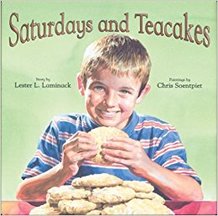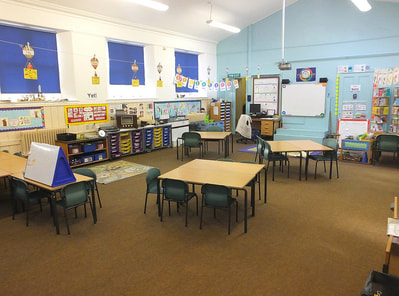|
by Ashley Haden Spending time on a college campus as finals near always leads to hearing familiar complaints in the air. These are complaints about the workload, upcoming exams, and, of course, writing papers. “I hate writing” is one of the most common complaints that I’ve noticed at a wide variety of grade levels. Students will often actively try to avoid writing if possible. Why is this? A lot of it depends on the individual, but part of the problem can be found as early as elementary school. This is the time when children are learning how to write. They are taught grammar and mechanics and the “correct” way to do things. Their papers become marked with red pen. Fix this comma. You cannot start a sentence with “because.” That’s not how you spell that. It’s simply exhausting. Getting papers back that are marked with corrections to the grammar and formatting becomes discouraging, and even more importantly, it’s missing the entire point of improving student writing. While good writing does include knowledge of grammar and mechanics, I would argue that good craft is even more important. Craft is how successful writing develops, and when it is ignored, students grow only in grammar and cookie-cutter formats. They lose their creativity due to a lack of encouragement and lessons about craft itself. Then, they end up hating to write. Creative writing deserves it’s own time in the classroom aside from grammar and mechanics. It should be time when students can write without fear of the red pen and receive encouragement for improvement of craft. We see this at the college level within writing centers. These centers do not correct papers for mechanics; their goal is to help create stronger writers. The tutors focus on the craft of the piece instead of fixing grammatical errors. This can easily be done at the elementary level as well. All it takes is a little creativity. The beginning of writing time can start with a mini lesson that highlights a form of craft that they can use in their own writing. Then, the students should be able to write independently in a notebook that is personal to them. It is during this independent writing time that the writing conferences occur.  Writing conferences are perhaps the best tool available to help encourage students. These conferences should be brief, where the teacher sits beside the student and observes the writing before providing one thing the student is doing well and one suggestion for the work. The key here is that there is no criticism, and the child retains ownership of his/her work by the teacher refraining from holding it or collecting it. The feedback should always be more than “I like…” because it does not matter what is liked. It matters why the craft being used is successful. By pointing that out, the student understands what he/she is doing, why it works, and will be encouraged to keep doing it in his/her writing. For example, a teacher pointing out “one thing you’re doing well is using different speaker tags, not just the word said” and suggesting, “next time, you can try some repeating phrases like we saw in the story Saturdays and Teacakes” provides feedback that the student can use. Plus, referencing a book that was read in class such as Lester Laminack’s Saturdays and Teacakes allows the student to better understand the suggestion. Compliments can be found everywhere. Even a student who spelled a word incorrectly, but took the time to sound it out in a way that makes sense, can be complimented on that effort because it can still be read. The conferences also provide a good time for the teacher to make note of what the student may be ready to do in the future and what the whole class may need to work on in a classroom lesson. By structuring conferences this way, the teacher is building the student’s confidence instead of pointing out things that are done incorrectly. The grammar lessons are saved for another time with different pieces of writing. Conferences provide a time to praise children who may not be used to getting positive feedback. If a child has done something particularly well, it can even be highlighted to the entire class, which will likely make that student’s entire day. It leads to students who believe in themselves and can do more than format an essay “correctly.” By lifting students up in this way, we can prevent the hatred of writing and craft better creative writers.
0 Comments
Leave a Reply. |
Archives
April 2024
Categories
All
|
|
Glassworks is a publication of Rowan University's Master of Arts in Writing 260 Victoria Street • Glassboro, New Jersey 08028 glassworksmagazine@rowan.edu |
All Content on this Site (c) 2024 Glassworks
|


 RSS Feed
RSS Feed
